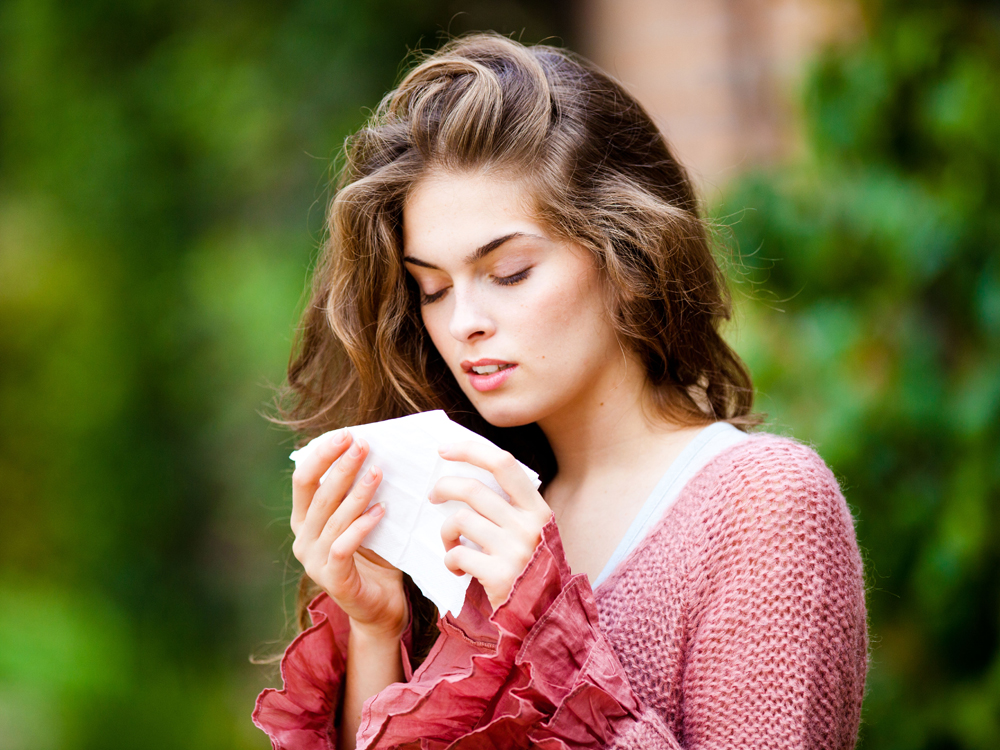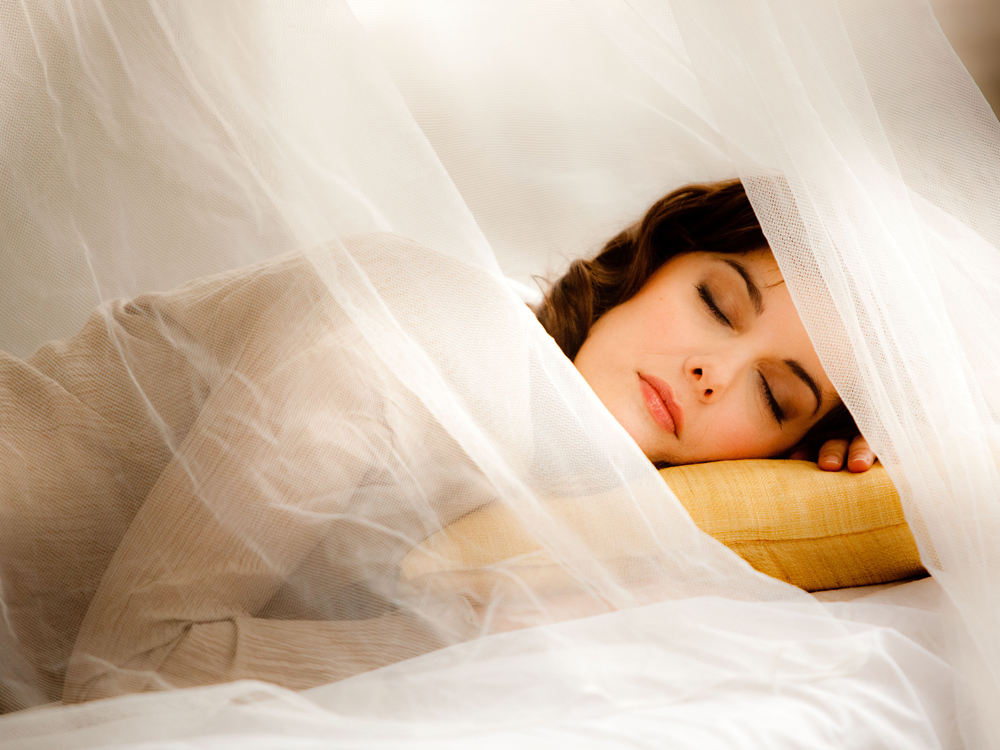Are You Allergic To Your Lifestyle?
One in three of us now suffers from an allergy - and it's often the things you least suspect. You come out in a rash whenever you go to work, you get eczema from your mobile phone and the thought of putting on your bra just makes you itch. We look at some of the least obvious allergens in your environment and the first signs that you're reacting to your lifestyle.

One in three of us now suffers from an allergy - and it's often the things you least suspect. You come out in a rash whenever you go to work, you get eczema from your mobile phone and the thought of putting on your bra just makes you itch. We look at some of the least obvious allergens in your environment and the first signs that you're reacting to your lifestyle.
'It is possible to be in contact with a potential allergen for years and not develop an allergy to it,' explains Dr David Orton of the British Association of Dermatologists. 'However, this can change suddenly, without warning.'
Becoming allergic to the everyday items in your life is on the rise. It can be frustrating while it remains unexplained, painful while it brings you out in dermatitis or eczema and concerning while you struggle to explain your health problems. 'When you first come into contact with an allergen it is possible to become sensitised to it (developing the capacity to react to it), and further contact (specifically at stressful times) is likely to elicit an allergic response.'
So if you're struggling to match up a reaction to its cause, take a look at all of the tiniest of things in your routine that could be causing the problem.

1. Inspiring Your Next Hair 'Do
Remember that impulsive (but at the time seemingly harmless) henna tattoo you opted for on a girls' holiday 10 years ago? Well it could be the reason that you're experiencing scalp irritation every time you dye your hair. 'PPD is added to henna by unscrupulous beach tattooists in the UK and abroad,' says Dr David. 'The PPD gives the henna a better contrasting colour that lasts longer. They sometimes add it in at 20 times the permitted usage levels used by hair dye manufacturers. At this concentration it is no wonder an individual becomes actively sensitised to it and, unless hair dye manufacturers come up with another technique for permanently dyeing the hair, they will develop an allergic reaction to all permanent hair dyes.'
'Severe reactions can lead to swelling and oozing over the scalp and hair margins with severe swelling of the eyelids and ears, too, while some people may only get redness and scaling and irritation over the scalp, but in both cases it should be checked out.'
Celebrity news, beauty, fashion advice, and fascinating features, delivered straight to your inbox!
2. Answering Your Phone
Think you're doing yourself a favour by holding onto your vintage mobile? Well there's never a better time to join the digital revolution than when you notice a rash or irritation around your cheeks and ears. 'Mobile phone dermatitis' has been related to nickel-containing buttons, speakers, cameras and screens on certain mobile phones - including the office favourite BlackBerrys - so repeated direct skin contact can cause a reaction.

3. Putting On Your Bra
That unexplained rash on your upper back, or the bout of eczema on your abdomen that's keeping you awake, could be down to those nickel-containing elements in your everyday garments - like your bra and the buttons on your jeans.
4. Spending Money
We knew that spending money was bad for us. And now we have proof. Five and 10 penny pieces (around since 1947, might we add) are actually causing an overexposure to nickel, according to a Swedish research study. Up to 10 per cent of the population are said to be affected by a nickel allergy, most of those being women, so an increased prevalence of nickel on our skin can't be good for developing a reaction at vulnerable times.
5. Getting Your Nails Did
Allergic reactions don't always match up to a specific change in your lifestyle, making it hard to distinguish the offending allergen, as Dr David Orton explains: 'Though artificial nails can cause eczema around the nail beds, they can also create a reaction at the "ectopic" sites, which include the eyelids and neck. Puffy, red eyelids that later become scaly are a good sign, alongside the common itchy eczema patches.
'In extreme conditions, the acrylate chemicals used in artificial nails can also cause reduced sensation in the fingers. You should also inform a dentist if you've has an acrylate reaction because they can have a cross reaction with restorative dental implants.'

6. Protecting Your Skin
Many sun creams contain methylisothiazolinone (MI) which is a known skin irritant. 'Some allergies can develop unexpectedly if the allergen in question suddenly comes into widespread use and is a sensitising chemical. With higher concentrations of the preservative MI being used in cosmetics, detergents and domestic paint across the UK and Europe, there has been a sharp resultant rise in those allergic to such cosmetics.'
7. Getting Dressed Up
We all love a statement necklace, and the high street offers so many inexpensive outfit-making options, but that area of red, itchy dry skin isn't just a coincidence. Your everyday necklace could be the start a bout of eczema. 'The most prevalent allergies we see in the UK tend to be common in our environment such as the metal nickel,' says Dr David. 'When we test for a nickel allergy, approximately 15 per cent of patients aversion and normally because you've been sensitised by cheap earrings. You would then get patchy dermatitis appearing at the site of prolonged contact with the earrings, rings or necklace.'
8. Growing Your Hair
Those dreamy tresses you've always wanted are just a set of semi-permanent hair extensions away - no need for the years of committed natural hair growth. But it might be worth paying attention to a mild reaction to latex gloves, balloons and even condoms when you book in for the all-important hair appointment. Latex glue is often used to secure hair extensions, and once they're in, they're pretty hard to separate from skin the moment you notice itchiness, inflammation or swelling.

Got a tablet? Take the new look Marie Claire wherever you go, download straight to your iPad & iPhone, Kindle (just search the store for 'marie claire magazine'), Nook or Google Nexus for only £2.99.